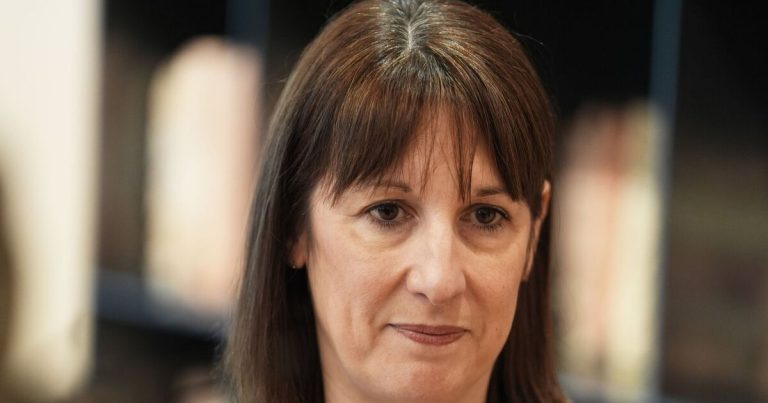

‘I was wrongly paying £400 extra for dad’s care home per month – check you’re not too’ (Image: Richard Heyes)
A man has successfully won a claim for the reimbursement of incorrectly charged “top-up” fees for his father’s care, sparking calls for families to check their rights.
Richard Heyes, 48, from Adlington, Lancashire, paid an additional £400 per month for his father, John Heyes, at Littlewood Manor Care Home in Preston. Although the local council covered most of the care costs, a “top-up” fee was demanded because the council’s budget didn’t match the care home’s charges.
Over 14 months, this amounted to thousands of pounds, placing a heavy financial strain on Mr Heyes. He said: “Paying £400 per month was a significant financial strain. It created emotional and financial pressure during an already difficult time, especially as the responsibility was entirely on me.”
John Heyes, who required complex care after contracting COVID-19 and experiencing hospital delirium, passed away in March last year. The care home, located 20 miles away, was the only one able to meet his needs at the time of his hospital discharge.
Mr Heyes said: “I was told about the top-up fees but not that the council had a legal obligation to offer an alternative without them.”
READ MORE: Premium Bond saver becomes millionaire two years after purchase

Richard Heyes filed a complaint against the council after finding out he was unfairly charged. (Image: Getty)
He added that Preston Hospital was under pressure to discharge his father after a lengthy stay, leaving him little choice but to accept the proposed placement.
After receiving legal advice from Hugh James Solicitors, Mr Heyes filed a complaint, which the council upheld, agreeing to reimburse the top-up fees. He said: “Families must be informed of their rights and not pressured into financial commitments unnecessarily.”
Lisa Morgan, a partner in Hugh James’s nursing care recovery team, highlighted that top-up fees are often misunderstood. She said: “The law requires transparency and a genuine choice of accommodations. When councils fail to meet these duties, families unfairly bear the cost.”
The financial and emotional strain left Mr Heyes feeling unsupported and overwhelmed during an already challenging time. He said: “There’s a sense of entrapment in these situations. You feel the well-being and comfort of your loved one take precedence over everything else, but you shouldn’t have to choose between that and financial stability.”
With care costs rising sharply in recent years, many families face similar challenges. The average weekly cost of care in the UK currently exceeds £1,300, according to care home specialist Lottie. When affordable alternatives are not offered, families are often left to either pay additional fees or risk uprooting their loved ones from their chosen care home.
Mr Heyes hopes his story will encourage others to ask questions and seek advice. He said: “I would encourage families to seek legal or professional advice as early as possible. Ensure you fully understand your rights and challenge anything unclear or unfair. No one should go through what I did.”
If a resident’s capital falls below the local authority’s capital limit threshold (£23,250 in England, £32,750 in Scotland, or £50,000 in Wales), they usually qualify for help from the local authority to cover care fees. However, if the care home charges more than the amount the local authority deems necessary, the authority may either ask the resident to move to a cheaper home or request a top-up fee for staying in their chosen care home.
At this point, families are often given the option to cover the shortfall or have their loved one moved from the care home they have come to regard as home.
Ms Morgan added: “With an ageing population and rising care costs, future care is a real concern for many.
“It’s incredibly stressful for families to worry about finding hundreds of pounds a week on top of their usual expenses. It becomes unlawful when councils, tasked with funding care, fail to meet their legal obligations, leaving families to unfairly pay thousands in top-up fees.”
Caroline Abrahams, charity director at Age UK, said: “There simply isn’t enough money coming into social care, and one of the results is that older people who use care services and their families are often being asked to pay extra in various ways, not all of them legitimate.”
She went on to explain that “top-up fees in care homes are one such example.”
She said: “Originally, ‘top-ups’ were supposed to allow an older person whose care was being provided by the State to pay a little extra for, say, a slightly bigger room. Fair enough, we may all feel, but today these ‘top-ups’ are sometimes being levied routinely in return for a standard care home stay, not in exchange for an enhanced service.”
Ms Abrahams continued: “This practice is unfair and potentially unlawful too. However, it places older people and their families in a horrible position if they are made to feel that paying up is a condition of being in a given care home at all.
“The shortage of care homes in some areas can leave families with little choice.
Ms Abrahams added: “In a properly funded, reformed system of social care, ‘top ups’ would fulfil their original purpose of allowing a degree of consumer choice, but for now, they can feel much more like another rip-off by older people and their families desperately searching for good, reliable residential care.”
A Lancashire County Council spokesman said: “We do make a point of working with partners in order to discuss all available options with people receiving social care. However, there seems to have been an oversight in this particular instance, and Mr Heyes has been reimbursed. We apologise for our error and we have looked into the matter in order to ensure lessons are learned for the future.”







